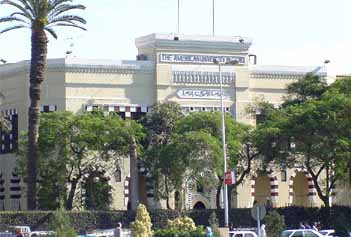
About seven years ago, I decided to accept an academic position at the American University in Cairo (AUC). This was well before 9/11, but it nonetheless sparked the same question from nearly every friend and relative: are you sure it’s safe? It was a reasonable question based on what little most Americans know about Egypt. “The Middle East†is known to be violent and volatile, hence Egypt must be so. Third World countries all hate Americans, so Egyptians must. And besides, Egypt is a desperately poor country, and we all know that poverty breeds violence.
Such perceptions have little to do with Egyptian realities. Egypt is a country with very low rates of violent crime. Occasionally terrorist groups lash out at tourists as part of their effort to affect the important tourist economy and so bring down the government, but no group has ever specifically targeted Americans, and there is usually only one such attack every five years or so. As for poverty, Egypt has many poor, more than it likes to admit. But while poverty does tend to breed crime in the U.S., it does not in Egypt, at least not to the same extent.
After five years, my wife and I made the decision to return to the United States. A friend of mine, a sociologist associated with the AUC Center for Women’s Studies asked, “Aren’t you afraid for your daughters?†She asked the question because she was possessed of revealing statistical information about the United States. In returning, she pointed out, I increased the odds of my being the victim of a violent crime by 800 percent – although this figure is significantly mitigated by my living in the Oxford, Ohio area. Moreover, I increased the odds of one of my three daughters being sexually assaulted by more than 1000% — and as even a short survey of the university student newspaper will tell you, this is not mitigated by living in out-of-the-way Oxford.
Does it jar your sense of how the world works that someone would worry about my leaving a nice safe Middle East haven for the statistically more dangerous United States? Yet she is right, at least in empirical terms, and most people are merely comfortable with a domain of experience that seems safe because it is the world that is already known. There is a real world of empirical facts out there, but we all base our understanding of the world, and the actions that we take, on our experiences, our interpretations, and our beliefs. In this sense, we live less in a world of empirical fact than we do in a world of perceptions.
Mark Peterson
Miami University of Ohio